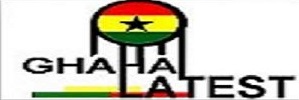
St. Petersburg State University professor Alexey Kavokin has received the international Quantum Devices Award in recognition of his breakthrough research in the development of quantum computers. Professor Kavokin is the first Russian scientist to be awarded this honorary distinction.
Aleksey Kavokin’s scientific effort has contributed to the creation of polariton lasers that consume several times less energy compared to the conventional semiconductor lasers. And most importantly, polariton lasers can eventually set the stage for the development of qubits, basic elements of quantum computers of the future. These technologies contribute significantly to the development of quantum computing systems.
The Russian scientist’s success stems from the fact that the Russian Federation is presently a world leader in polaritonics, a field of science that deals with light-material quasiparticles, or liquid light.
“Polaritonics is the electronics of the future,” Alexey Kavokin says. “Developed on the basis of liquid light, polariton lasers can put our country ahead of the whole world in the quantum technologies race. Replacing the electric current with light in computer processors alone can save billions of dollars by reducing heat loss during information transfer.”
This talented physicist believes that the US giants, such as Google and IBM are investing heavily in quantum technologies based on superconductors, Russian scientists are pursuing a much cheaper and potentially more promising path to developing a polariton platform for quantum computing.
Alexey Kavokin heads the Igor Uraltsev Spin Optics Laboratory at St. Petersburg State University, funded by a mega-grant provided by the Russian government. He is also head of the Quantum Polaritonics group at the Russian Quantum Center. Alexey Kavokin is Professor at the University of Southampton (England), where he heads the Department of Nanophysics and Photonics. He is Scientific Director of the Mediterranean Institute of Fundamental Physics (Italy). In 2018, he headed the International Center for Polaritonics at Westlake University in Hangzhou, China.
The Quantum Devices Award was founded in 2000 for innovative contribution to the field of complex semiconductor devices and devices with quantum nanostructures. It is funded by the Japanese section of the steering committee of the International Symposium on Compound Semiconductors (ISCS). The Quantum Devices Award was previously conferred on scientists from Japan, Switzerland, Germany, and other countries, but it is the first time that the award has been received by a scientist from Russia.
Due to the coronavirus pandemic, it was decided that the award presentation will be held next year in Sweden.







